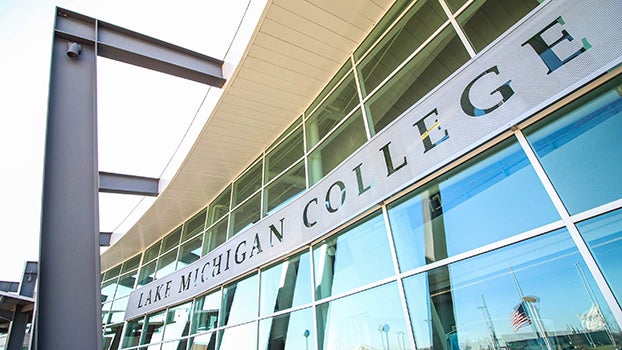SMC professor shares stories of FBI work
Published 10:35 am Monday, November 30, 2015
Thwarting terrorism can seem like playing the Super Bowl every day.
St. Joseph FBI Special Agent Jeffrey Brown, who teaches part-time in Southwestern Michigan College’s criminal justice program, was a police officer for more than 10 years with the Berrien County Sheriff’s Department and the Phoenix Police Department.
His work combating Arizona narcotics brought Brown to the “The Bureau’s” attention.
As a supervisor in the Washington Counterterrorism Division, Brown focused on Iran, Hezbollah and Syria in 9/11’s aftermath.
“We weren’t sure when there was going to be another 9/11-style attack,” Brown said, “or a dirty bomb. It was like the Super Bowl every day. The bad guys can afford to make one mistake. In law enforcement, specifically at that time, any mistake would cost U.S. citizen lives. We worked long hours seven days a week to prevent that next attack. I worked a lot of different cases with Mossad,” Israel’s national intelligence agency.
Brown fulfilled two Iraq duty tours attached to Joint Special Operations (JSOP).
“Gens. David Petraeus and Stanley McChrystal decided we needed to bring special ops under one umbrella. We had Seal Team Six, Delta Force, an alphabet soup of military going into the Red Zone. The Green Zone was the ‘safe area’ that never was. Every single night we got shelled by Al-Qaeda. That took ‘community-based policing’ to a whole new level.”
After tours in Afghanistan and Guantanamo Bay, where he interviewed detainees, a promotion brought Brown to Detroit for four years as a supervisor involved with the Violent Crime Task Force and Southeast Michigan Crime Against Children.
“From there I got promoted again and went back to headquarters as unit chief in charge of one of three counterterrorism units. We had a suicide bomber go into the U.S. embassy in Turkey and the Boston Marathon bombing” on April 15, 2013.
Brown’s unit encompassed 56 people worldwide.
“We got really busy really quick” sifting through a torrent of leads to apprehend the Tsarnaev brothers.
“There are a lot of moving parts,” he said. “You can’t do it by yourself. Law enforcement is successful globally because we work together. In the ’60s, the FBI walked in with an earpiece and sunglasses and said, ‘We’ve got this.’ That gave us a bad reputation and is no more. It can’t be. If 9/11 didn’t teach us that as a law enforcement community, I don’t know what will. All of you pursuing law enforcement careers, keep working together in the forefront of your mind.”
“We had to deal with the Russian KGB,” Brown said, “to share information. We worked with Moscow and other international partners and were able to prosecute the brother still alive. Then I came home to St. Joseph (in December 2013). I’d done the leadership and management thing and was ready to go back to working bank robberies, drugs and gangs.”
Brown was attending the FBI academy when Robert Hanssen was caught spying for Russia.
“Director Louis Freeh talked to us after the takedown broke in the media about what a sad day it was for our nation and the FBI,” Brown said.
Law enforcement success demands soft skills such as communicating effectively.
“You’ve got to be able to talk to people,” Brown said, “whether it’s getting down on a knee for a little kid who’s been victimized, a bank CEO or a dope dealer you’ve just kicked in his door because he’s been making a neighborhood crazy with fear. You have to adapt.”
Even writing a ticket can work to an officer’s advantage.
“If you can make a positive contact with that traffic stop, that person might remember you were respectful and call a year from now about their neighbor’s basement meth lab,” Brown said.
“You won’t find a more dedicated bunch of people than you will within law enforcement, from the prosecutor’s office to police and corrections officers,” Brown said. “None of us do it to get rich. You’ll make enough money to take care of your family and put away a nest egg to retire, but the bottom line is we do this because we care. We want to make a difference in our communities or we wouldn’t do it. I applaud you for taking a look at it as a career. You’ll find it rewarding work.”
Brown addressed CJ Club’s “Heroes Night” in Mathews Conference Center East on the Dowagiac campus.
“We want to thank law enforcement officers and firefighters who put their lives on the line every day to protect us,” President Nicole Brill said to an audience that included Cass County Prosecutor Victor Fitz and Dowagiac Public Safety Director Steve Grinnewald. “(Dowagiac Deputy Police Chief) Jarrid Bradford and (Trooper) Rob Herbstreith (of the Michigan State Police in Niles) have done a lot of training for us. We’re very grateful to have our knowledge expanded outside of the classroom.”





